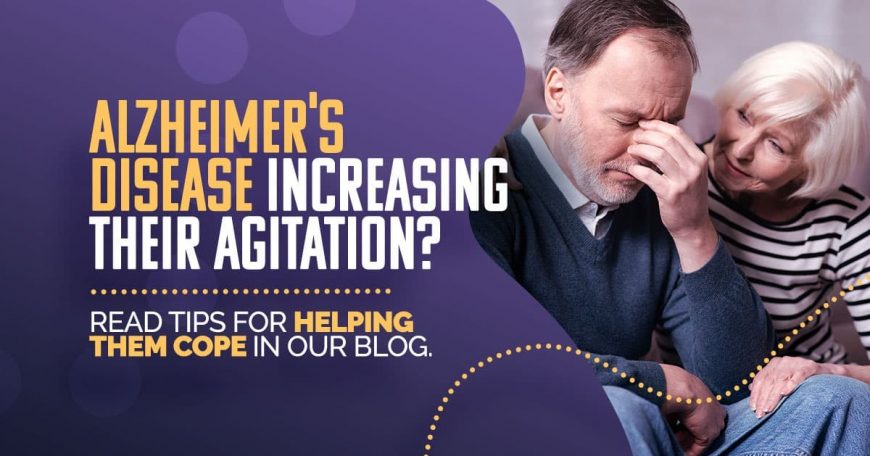
Alzheimer’s disease is a progressive neurodegenerative disorder. It initially causes forgetfulness that advances to severe memory and thinking impairment. Individuals with Alzheimer’s typically experience behavioral and psychological symptoms, such as agitation, increasing the burden on the caregiver. If your loved one is experiencing Alzheimer’s disease with signs of agitation and is struggling to cope, here’s what you need to know.
Agitation with Alzheimer’s Disease Is Common
Agitation is a common behavioral symptom that most patients with Alzheimer’s will experience. They may feel restless, causing a need to move around and pace, become upset in certain places, or when focused on specific details. The signs of agitation include:
- Rapid, exaggerated changes in mood
- Restlessness
- Irritability
- Aggression
Agitation is distressing and debilitating, causing significant negative consequences for patients and caregivers. Hence, it is one of the most common reasons patients with Alzheimer’s transition to nursing homes and other long-term care settings.
How to Cope and Make History in the Treatment of Agitation with Alzheimer’s Disease
If your loved one has Alzheimer’s and is showing the signs and symptoms of agitation, contact their doctor immediately. Their provider can identify other potential causes, such as underlying health conditions, circumstances, and medication interactions, and determine the best possible treatment path.
Steps you can take to reduce or prevent agitation include:
- Remove stressors – Create a calm environment, reducing noise, clutter, and the number of people present at a given time.
- Keep a routine – Set a schedule for bathing, dressing, and eating meals at the same times each day.
- Be calm- Speak calmly, listen to their concerns, and provide reassurance. Ensure their personal comfort needs are met for fatigue, hunger, skin irritations, digestive issues, etc.
- Help them feel secure – Keep familiar objects and photographs of friends and family around the house.
Furthermore, caregivers may need help with coping. To help ease the impact of caring for a loved one with agitation and Alzheimer’s disease, you can:
- Make your health a priority. Keep your regular appointments, get enough sleep, and eat healthy foods.
- Take time each day to do something you enjoy.
- Talk with other family members about stepping in, so you can get a break. It may even be helpful to look into respite options in your area.

Currently, there are no therapies approved by the FDA to treat the signs and symptoms of agitation in patients with Alzheimer’s disease. However, every FDA approval of new medicine starts with a clinical research study, as they provide the key tools used to find better ways to treat, detect, and prevent medical conditions.
ActivMed Practices & Research is currently looking for individuals to join a research study looking into new options for the treatment of Alzheimer’s. If your loved one experiences agitation with Alzheimer’s disease, please contact our location in Lawrence, MA to learn more at (978) 655-7155 or visit our website today!
Sources:
https://www.alz.org/help-support/caregiving/stages-behaviors/anxiety-agitation
https://www.nia.nih.gov/health/coping-agitation-and-aggression-alzheimers-disease
